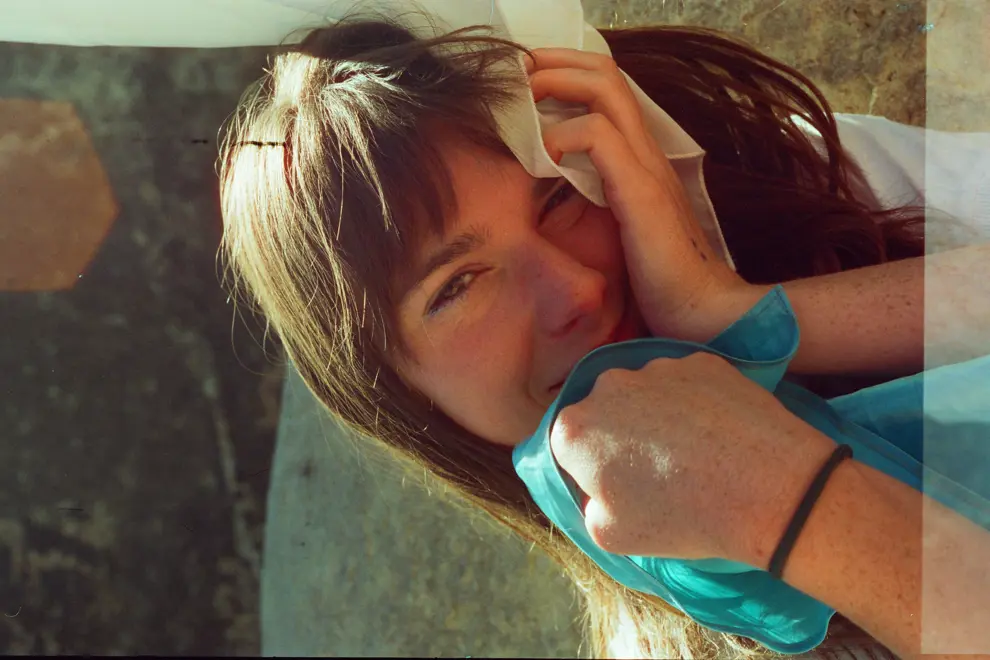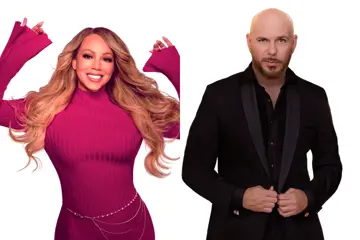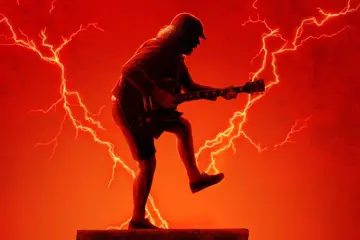 Angie McMahon
Angie McMahonTo use James Murphy's parlance, this was an “I was there” moment in Australian music history. There were those who saw Eddy Current Suppression Ring in 2009. Courtney Barnett in 2014. Rolling Blackouts Coastal Fever in 2017. Genesis Owusu in 2021. This is Angie McMahon’s moment, and Melbourne knows it.
With three sold-out shows at The Forum, she has finally arrived. And it’s on the back of Light, Dark, Light Again – arguably the best Australian album of last year. Music journalists use the word ethereal too often, but many of the songs on this album are nothing short of it.
They are also confessional to the point of awkwardness, and listening to them can make you feel like you are reading Angie’s diary over her shoulder on a train ride. It just shouldn’t be done. If the album title suggests a long journey, McMahon has come out the other side, and there is beauty and wisdom in her struggle. It’s fitting that the last song on the album and this tour is titled Making It Through. Angie has many qualities, but she’s not trying for subtlety. This is the sound of a woman reborn. And it sounds really fucking good.
On stage, she emanates the anxiety that is littered through her music. Before she strikes a single note, she leads the audience in a collective intake of breath, readying herself for the mental mountain of performance ahead of her. But from the moment her voice drops into that commanding lower register of hers for the opening lyrics of Fireball Whiskey, she is transformed. The fact the crowd were already shouting her words back at her by the first chorus surely did wonders for her nerves. After racing through her first three songs, she comes up for more air. “Now I feel human again,” she exhales. Deep breaths, Angie.
What’s most striking is her range. It’s what sets her apart from the myriad of singer-songwriters trying to beat an astute aphorism out of their guitar. Her bellow would impress Nick Cave, and she can hold a monosyllabic a cappella high note as well as Julia Stone. At times, she comes close to the hurricane that Florence Welch so often summons, but she has more restraint, making her tempests even more powerful when they finally do arrive. Her timbre is most akin to Sharon Van Etten, and the strength of her vocals is similar, with both barely needing a microphone to tower over their audience. It’s a weapon she wields so well.
Her band’s musicianship is also sparse and open, as if deliberately letting the songs breathe and whether McMahon knows it, they help to rescue some of her more facile lyrics, with a piano lick straight out of the Adam Granduciel handbook adding some life to the overly predictable nature of a song called Letting Go. And whilst her earnestness carries moments that flirt dangerously with Live, Laugh, Love territory, her delivery on darker tracks like Mother Nature hint at the anger that has simmered beneath the surface since her first singles.
“This song is about the deterioration of our planet, and I don’t know what else I can do except yell in my songs,” she proclaims in one of her many honest and charming interludes. She talks us through coming off anti-depressants, breakup songs, hitting rock bottom, discovering Buddhism and her weeklong struggle with acid reflux. Suddenly, any guilt for reading her personal lyrics dissipates when it’s clear she wants to walk all of us through her diary chapter by chapter.
That earnestness is married to an authenticity that bleeds through her on-stage performance, and it’s obvious that playing this music in front of her home crowd is cathartic for her. Older songs like Pasta are celebrated like old friends arriving at a party, and more sombre moments like Black Eye are treated with reverence from a crowd that are more acolytes than fans. They seem to understand how deeply personal this is for McMahon, and revelatory meditations on the world, like the sublime Saturn Returning, turn into a form of group therapy for those in front of her.
For better or worse, it is now impossible for artists of growing fame like McMahon to escape the Like a Version tractor beam, and if anything, it has become a good litmus test for artists on the precipice of greatness.
Her choice, Australian Crawl’s Reckless, plays into her themes of fear, redemption and growth. She deftly changes lyrics to highlight her central preoccupation and not insignificant source of anxiety, the environment. It’s a masterful cover. A quick aside - whatever place Daryl Braithwaite’s cover of Horses currently holds in wedding playlists and retro 80s dancefloor mixes around the country – the world would be a better place if Reckless took its place.
However, as beautiful as Angie’s performance is, the set drags slightly towards the end.
It’s unclear whether she felt she needed a longer show to justify the bigger venue, the top billing, the spotlight or the ticket price, but she would do well to trim it down. Especially the (second!) cover of the evening, Bob Dylan’s Blowin’ In The Wind featuring her friend and support act Ruby Gill, which takes the socially and environmentally conscious undercurrent of the evening and dials it up to 11. But you’d be an arsehole to criticise a woman too harshly when she sings those famous words with such conviction.
She is as principled as she is talented and is now off to conquer the world. Glastonbury awaits. And a hero’s return will surely follow. Let’s hope she doesn’t lose that wide-eyed wonder that makes her so unique along the way.






